第27章 THE LITERARY STATESMAN(2)
Abandoned by his former allies,his one hope was the retention of his constituency.To discredit Lincoln,to twist and discredit all his arguments,was for Douglas a matter of life and death.He struck frequently with great force,but sometimes with more fury than wisdom.Many a time the unruffled coolness of Lincoln brought to nothing what was meant for a deadly thrust.Douglas took counsel of despair and tried to show that Lincoln was preaching the amalgamation of the white and black races."I protest,"Lincoln replied,"against the counterfeit logic which says that because I do not want a black woman for a slave,I must necessarily want her for a wife.I need not have her for either.I can just leave her alone.In some respects she certainly is not my equal;but in her natural right to eat the bread she earns with,her own hands without asking leave of any one else,she is my equal and the equal of all others."[2]Any false move made by Douglas,any rash assertion,was sure to be seized upon by that watchful enemy in Illinois.In attempting to defend himself on two fronts at once,defying both the Republicans and the Democratic machine,Douglas made his reckless declaration that all he wanted was a fair vote by the people of Kansas;that for himself he did not care how they settled the matter,whether slavery was voted up or voted down.With relentless skill,Lincoln developed the implications of this admission,drawing forth from its confessed indifference to the existence of slavery,a chain of conclusions that extended link by link to a belief in reopening the African slave trade.This was done in his speech accepting the Republican nomination for the Senate.In the same speech he restated his general position in half a dozen sentences that became at once a classic statement for the whole Republican party:"A house divided against itself can not stand.Ibelieve this government can not endure permanently half slave and half free.I do not expect the Union to be dissolved.Ido not expect the house to fall,but I do expect it will cease to be divided.It will become all one thing or all the other.
Either the opponents of slavery will arrest the further spread of it and place it where the public mind shall rest in the belief that it is in the course of ultimate extinction;or its advocates will push it forward till it shall become alike lawful in all the States,old as well as new,North as well as South."[3]
The great duel was rapidly approaching its climax.What was in reality no more than the last round has appropriated a label that ought to have a wider meaning and is known as the Lincoln-Douglas Debates.The two candidates made a joint tour of the State,debating their policies in public at various places during the summer and autumn of 1858.
Properly considered,these famous speeches closed Lincoln's life as an orator.The Cooper Union speech was an isolated aftermath in alien conditions,a set performance not quite in his true vein.His brief addresses of the later years were incidental;they had no combative element.Never again was he to attempt to sway an audience for an immediate stake through the use of the spoken word."A brief description of Mr.
Lincoln's appearance on the stump and of his manner when speaking,"as Herndon aptly remarks,"may not be without interest.When standing erect,he was six feet four inches high.
He was lean in flesh and ungainly in figure.Aside from his sad,pained look,due to habitual melancholy,his face had no characteristic or fixed expression.He was thin through the chest and hence slightly stoop-shouldered....At first he was very awkward and it seemed a real labor to adjust himself to his surroundings.He struggled for a time under a feeling of apparent diffidence and sensitiveness,and these only added to his awkwardness....When he began speaking his voice was shrill,piping and unpleasant.His manner,his attitude,his dark yellow face,wrinkled and dry,his oddity of pose,his diffident movements;everything seemed to be against him,but only for a short time....As he proceeded,he became somewhat more animated....He did not gesticulate as much with his hands as with his head.He used the latter frequently,throwing it with him,this way and that....
He never sawed the air nor rent space into tatters and rags,as some orators do.He never acted for stage effect.He was cool,considerate,reflective--in time,self-possessed and self-reliant....As he moved along in his speech he became freer and less uneasy in his movements;to that extent he was graceful.He had a perfect naturalness,a strong individuality,and to that extent he was dignified....